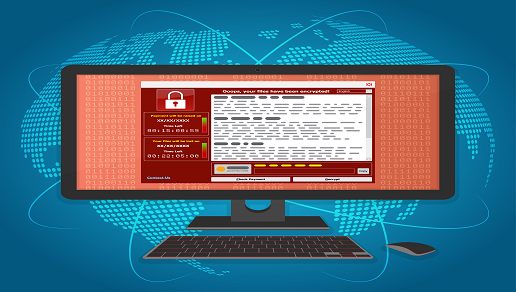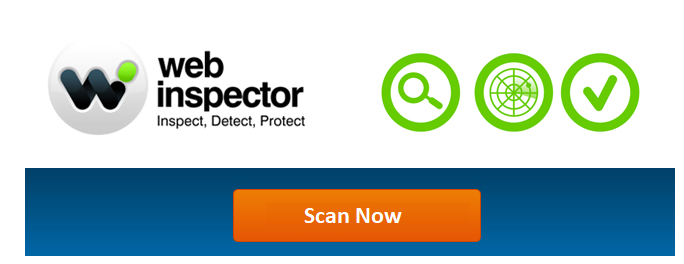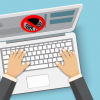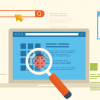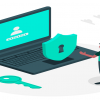Most people do not get the difference between website vulnerability and malware and use one to mean the other. Website Vulnerability vs. Malware – What’s the Difference? The differences between these two are in how they operate.
Website Vulnerability
According to SiteLock, most websites experience on average 22 attacks per day, which sums to more than 8,000 attacks per year. Website vulnerabilities refer to weaknesses or misconfigurations in web application codes or websites. These weaknesses give attackers some control of the websites and sometimes the host server. Most of these weaknesses are exploited via automation such as botnets and vulnerability scanners.
Most website vulnerabilities are a result of the habits of site owners while some are technicalities. Cybercriminals build special tools that go through the internet for platforms with vulnerabilities. Once they detect the vulnerabilities, the hackers use them to spread malicious content, steal data or inject spam into the website. Types of vulnerabilities include:
- Weak passwords: Using short and easy to hack passwords is one of the biggest site vulnerabilities. Most site owners use obvious passwords, which are easy for hackers to crack. Cybercriminals use brute-force attacks using software that runs billions of passwords, hoping to get the right one. Most times, they get lucky when they come across passwords that are simple and easy to crack.
- Outdated and apps and files: Updates on websites include security patches that get rid of vulnerabilities. Not installing updates leaves these weaknesses available for exploitation. Software developers are continually finding bugs and vulnerabilities in their software. They update the software and publish the vulnerabilities. If your software is not updated, the hackers use the published vulnerabilities to hack into your un-updated software version.
- SQL injections: In areas where your visitors interact with your website such as fields for data entry can be manipulated to inject SQL statement.
- Cross-site scripting (XSS): These attacks involve injecting malicious programs into websites. It then controls how visitors enter information on your site.
- Excessive permissions: Ensure that the people who have access to your site only have the necessary permissions according to their role.
Malware
Malware is software that is specifically created by bad actors for malicious purposes. Malware is more common with computers but can also infect and attack websites. Hackers often attack websites to gain access to data it receives or contains, or they might be more interested in holding the website hostage for ransom. Some types of malware include:
- SEO Spam: SEO spam is also called spamdexing, and is an attempt by hackers to control search indexes to include content, which is odd for that site. For example, if your site is all about sports, you may see a random advertisement for foodstuff…
- Backdoors: As the name suggests, backdoors are types of malware that provide cybercriminals with entry points to your system. These backdoors allow hackers to gain access to your website and make their stay permanent. Access to the websites gives hackers the power to leak sensitive client data, change the appearance of the website, etc. Backdoor files are so sophisticated that they are almost undetectable and they are very popular with bad actors. In the second quarter of 2018, 43% of infected sites had at least one backdoor file.
- Hack tools: Hack tools are tools used by bad actors to gain access to a website. These tools rely on a website’s server to carry out attacks. A mailer is a popular tool with hackers and it sends phishing emails to victims from a seemingly legit source.
- Defacement: Website defacement is an unauthorized modification of web pages, which includes adding, removing, or altering the existing web content. Hackers, who compromise web servers and websites, replace the content with their messages.
- Credential stealers: This malware allows hackers to create one-time programs that attack ecommerce sites and the go-ahead to steal customers’ credit card information. Cybercriminals have devised ways to steal payment card data by hiding malicious code in file images.
How to keep your website safe
Ensure your site is secure from hackers by doing the following:
- Installing web security tools
- Updating software
- Avoiding file uploads
- Use HTTPS
- Web application
Conclusion
Website vulnerabilities and malware are different but often confused for one thing. Unless you understand both, it is hard to tell them apart. Hackers are always out to gain access to websites for the information therein, and the information it receives from its visitors. Ecommerce sites are especially at risk, considering the financial data clients input when buying goods and services.
As site admin or webmaster, you have to take all the necessary precautions to prevent cybercriminals from gaining unauthorized access to your site. Updating your software and installing web security tools will especially give you a good level of security. Good web practices and educating yourself on how to detect these attacks are one-step to securing your website.
Related Resources
Best Website Security
Website Malware Scanner
Website Backup
Website Status
Website Malware Removal
DDoS Tools
WordPress Malware Removal
DDoS Attack
Check Website Reputation
BEAST Attack
Malware Scanner
